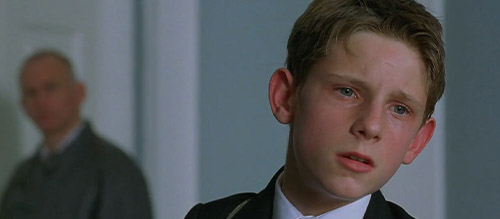

By chance, he finds and eventually joins a ballet class that is using the gym.

Billy’s father sends him to the gym to learn boxing, but Billy dislikes the sport.
#Who is billy elliot professional
Billy lives in a small mining village near Durham with his widowed father, Jackie, and older brother, Tony, who are both coal miners out on strike and also his maternal grandmother, who has dementia, and once aspired to be a professional dancer. Released in 2000, Billy Elliot is set against the backdrop of the miners’ strike in the north of England in the mid-1980s. As I intend to show, the politics of these two films are also quite different – even if both of them ultimately focus on an individualistic form of escape. Where Kes initially struggled to achieve widespread distribution, Billy Elliot gained Oscar nominations and BAFTA awards, and has made over $100 million at the box office. They are also very different kinds of films: Kes is a naturalistic drama, produced by a small UK independent company, while Billy Elliot is a high-budget entertainment, produced by Universal Studios and clearly targeted at a large global audience. Nevertheless, the outcomes of their two stories are very different: unlike Billy Casper, Billy Elliot is supported by a charismatic teacher, and eventually by his family and local community and where Kes ends in tragedy, Billy Elliot ends in triumph. Some scenes seem like direct echoes, especially the sequences where the boys steal a book in order to learn more about their new-found interest and there is a key moment in both films where each of them is able to articulate in a more public setting how it feels to engage in their passion. Instead, both find a passion that they struggle to develop in secret. Both Billies reject the traditionally masculine activities (football, boxing) they are encouraged to pursue, as well as the potential future that is laid out for them in working down the coal mine. Like his namesake, Billy Elliot has a missing parent (in this case, his mother), and is routinely belittled by an older brother. Like Loach’s film, it is about a young boy who seeks to escape from the constraints of his poor, working-class upbringing – in this case, in order to develop a talent for dance. Altercation follows and his father makes comments alluding to ideas about the sexuality and masculinity regarding boys who dance.The next film I want to consider breaks slightly with the chronological sequence, yet Stephen Daldry’s Billy Elliot contains so many echoes of Kes that it really needs to be read alongside it. This scene shows Billy’s own stereotypical views being challenged as he finds out ballet appeals to himīilly’s father Jackie discovers Billy has been taking ballet classes. Represents the beginning of his transition – beginning to progress into new worldĭoor represents a possible transition in regards to a world he is expected to be a part ofĭiegetic sound of ballet music over the boxing scene shows impact music has on Billy and creates juxtaposition between expectations and desiresīilly joins ballet class – low angle and close up shots create juxtaposition between the ballet/boxing shoes (represents alienation) Opens with Billy outside the boxing hall repetitively pushing the door, in the ring he is hesitant to fight Billy faces extreme adversity from his family and community that hold traditional values and beliefs. The film depicts a young boy facing the challenge of overcoming traditional gender stereotypes to pursue his love for ballet. BILLY ELLIOT (2000, STEPHEN DALDRY) – TRANSITION – THE DOOR MIROSLAV HOLUBīilly Elliot is a film set in an English town of Everington, England during the 1985 mining strikes.


 0 kommentar(er)
0 kommentar(er)
